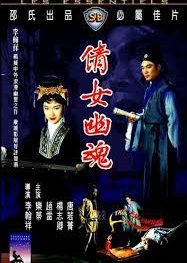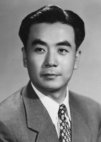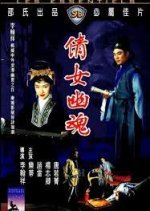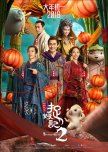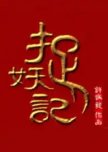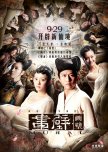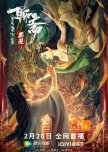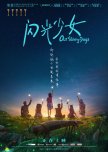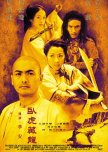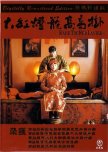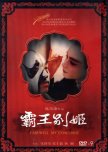A young scholar spends the night in a creepy temple that is said to be haunted. He doesn't believe in the rumors, but after running into a Taoist swordsman, he meets a beautiful lady ghost. (Source: IMDb) Edit Translation
- English
- magyar / magyar nyelv
- עברית / עִבְרִית
- dansk
- Native Title: 倩女幽魂
- Also Known As: Ching Nu Yu Hun , Qian Nü You Hun
- Genres: Historical, Horror, Romance, Drama
Cast & Credits
- Betty Loh TiNieh Hsiao ChienMain Role
- Yang Chi ChingYen Chih HsiaMain Role
Reviews

This review may contain spoilers
When You get a rent-free house, the catch is around the corner...
Just arrived in a small town, the tax collector (or scholar, depending on the translation A/N) Ning Caichen (Chao Lei), unable to find accommodation for the night, chooses to take refuge in a temple outside the village limits, despite the warnings of many people, who are convinced that the place is haunted by evil presences.The villagers' ominous superstitions prove correct: The temple Jinhua appears to be cursed…
And from the manor house near the temple, a delightful young girl (Betty Loh Ti) sings, accompanying herself on the koto…
An essential classic born from the fertile creative forge of the Shaw Brothers studios and the talent of director Li Han-hsiang (also author of the subsequent and magnificent ‘The Love Eterne’), which is not always fully recognised, “The Enchanting Shadow” is an imaginative work that transcends genres and styles, thanks to its fluid and modern staging and truly exquisite use of photography, with magnificent visual effects and colour schemes.
A true pivot point in fantasy productions (a definition that, much like black, wears well with everything), the movie, which draws inspiration from Pu Songling's collection ‘Strange Tales from a Chinese Studio,’ it was released in the summer of 1960 and also competed at the Cannes Film Festival that same year, and it is certainly not pure fantasy to think that the work sparked some ideas in the minds of directors, producers, etc. in the Western film industry as well.
Considered by Riccardo Esposito, in his seminal book “Fant'Asia”, a sort of Oriental “proto-horror”, as well as an undeniable source of inspiration for Tsui Hark and his “A Chinese Ghost Story” (which is in fact a remake of it), ‘The Enchanting Shadow’ (but the original title is “Qian Nü You Hun”, which we will not translate so as not to reveal too much!) after so many years, it continues to prove itself well structured and highly enjoyable to watch, thanks to its appreciable, decidedly classic narrative structure (widely replicated and exploited over the years), which manages to condense the tale into less than 90 minutes, while also allowing for interesting genre mixtures that help to keep the viewer's attention alive throughout.
A striking mix of melodramatic and supernatural elements, enhanced by a fundamental musical complement and interesting horror digressions, the film captivates with its charm and evocative power, which, despite a context that is certainly not rich and perhaps even a little naive and hand-crafted, undoubtedly achieves its objectives of interest and entertainment, thanks not only to the remarkable work of the authors, but also to the clever use of ellipses and off-screen sequences and, of course, the excellent contribution of a perfectly cast ensemble.
Chao Lei, in the role of the initially timorous Ning Caichen, is the archetypal character of this genre of movies; A curious intellectual, attracted by the mystery surrounding the temple—which is truly creepy at night—guided by honesty and moral rectitude against fear and popular superstitions, he meets Yan Chixia (Yang Chih-ching), a sort of swordsman/hermit (and also a singer) who immediately makes it clear that he knows a lot about the terrifying voices surrounding the ruined building.
Ning thus inevitably and progressively becomes the “perfect prey” of Nie Xiaoqian, a mysterious young woman played by the captivating and irresistible Betty Loh Ti, who, thanks to her excellent performance, ends up being the real focus of the movie.
From her first appearance, the beautiful actress exudes a magical aura, placing her character in a decidedly “fantastic” dimension, so much so that we immediately wonder whether Nie Xiaoqian is a real woman or perhaps “something else”.
Each of her “appearances” (it is appropriate to write it this way) deeply affects – and progressively more and more – poor Ning, who desperately tries to resist the young girl’s enchanting exploits from the seductive temptations of the flesh to those that are decidedly more materialistic (his goodness, one might say!), especially as he discovers, as the story advances, unthinkable truths about the aforementioned girl, truths that will inevitably shake his most firmly held convictions.
The work of the director of photography is truly remarkable, playing with the colours, contrasts and shadows of the night in the temple, in a happy chromatic combination with the beautiful clothes of the protagonist (each time in different colours variations), particularly the blue tones at the moment of the (not too surprising) “confession”.
This is a detail that should not be underestimated and that allows me to digress briefly:
In the years that followed, American director Roger Corman, thanks to the contribution of his extraordinary director of photography Floyd Crosby, would often replicate this visual trickery, especially in his series of movies based on the stories of Edgar Allan Poe and, also in Italy, Mario Bava - who, curiously, released his extraordinary classic ‘La Maschera del Demonio’ [“Black Sunday”] in the same year, 1960 -, will amaze with his subsequent horror productions, exploiting visually ‘colourful’ techniques not unlike those appreciated here in ‘The Enchanting Shadow’;
As if to recreate a metaphorical bridge capable of highlighting the wonderful ability of the seventh art to transcend boundaries and find happy stylistic points of encounter...
Undoubtedly a pivotal work in the development of Hong Kong genre cinema, ‘The Enchanting Shadow’, as a classic, continues to be enjoyed thanks to its old-fashioned charm, or ‘vintage’ appeal, if you will, which many may find outdated or obsolete, but which, to me personally, makes it formally exemplary, thanks to the right atmosphere and the skilful hybridisation of different genres (a feature that will later become recurrent), capable of being appreciated by the most willing and discerning viewers...
8 ½
Was this review helpful to you?
Recommendations
There have been no recommendations submitted. Be the first and add one.

